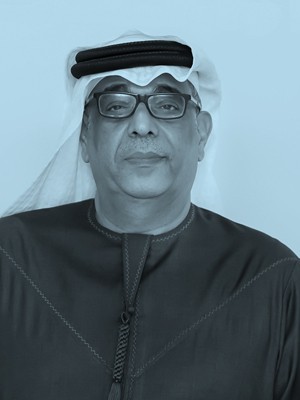Defining the objectives of the Health Care System
While my friend was explaining to me how the doctors in Germany diagnose the knee pain that he has suffered and the proposed treatments, a question comes spontaneously to my mind, Why our doctors cannot make such a diagnosis that was concluded by the doctors in Germany, specially it is an external diagnosis not a macroscopic or laboratory diagnosis.

- by Mohamed Ahmed Yusf Al Obaidly ,
- Tuesday, 18th July, 2017
Reason for his knee pain is the length difference between both legs, one of his legs is shorter than the other about a centimeter and a half. Therefore, special shoes was made for him to help him to avoid the consequences of this congenital defect. However, the German doctor concluded that by external examination, the question here is, "Is it possible for local doctors in the Gulf States or any other Arab country to conclude such diagnosis?", and "Why it is required to travel to Germany to discover a problem like this?" We certainly have skilled doctors but why the available experiences are not able to handle of most diseases, which drive many to travel to other countries to receive diagnosis and treatment are available in our country.
If it is available or we assumed that, and if our doctors are able to provide the same diagnosis? Theoretically, we can assume that doctors everywhere are qualified to discover the same diseases and illness and provide the same treatment, but this is not true. Actually, the disparity of experience between doctors and from country to country makes a difference in the way how the doctors deal with cases and the possibility of concluding of the most accurate and correct diagnosis of the disease.
Hence, we could ask a question, what is the best definition of experience? Does ageing of years give experience necessarily? If the experience coms from another place and source?
Experience may come from ageing of years and recurrence of cases, but this kind of experience cannot develop the efficiency and effectiveness of any health system, unless a final objective is determined for this experience.
Health system in any country based on objective seems self-evident, is providing health care services to the population, therefore; this objective needs to be determined with accurate definitions. Is that mean, patients wait to arrive at hospitals and provide services for them? Or raise the readiness to handle a health pandemic caused by emerging external factors? Is that the immunization and vaccination? Is it creating new treatments for endemic diseases?
Therefore, who would bear the cost of these services? Is the state will bear it or will be left to the private sector, market factors and the supply and demand rule?
Limited possibilities and an advanced health system
Away from controversy about, if the governments or the private sector will bear the costs of providing the health services, there are some experiments show the validity of this or that option. In this regard, country with few possibilities and resources like Cuba is a good choice for this experiment.
According to the World Health Organization and several regional and continental health organizations, Cuba established one of the best health systems in the world, which is envied by many other countries including a few developed countries.
According to a report by "ABC" network, full immunization of children up to the age of two years totaled 98%. The children are vaccinated against 13 diseases, also; prenatal health care reaches 95% of pregnant women by the first three months of pregnancy. However, the infant mortality rate is less than 5.3 per 1000 births, while in the United States is 8.26 and in Canada is 5.5 per 1,000 births.
On another hand, there is another achievement is eliminating mother-to-child transmission of HIV. In 2015, the World Health Organization recognized that Cuba was the first country to remove mother-to-child transmission. In addition, the Cubans created a lung cancer vaccine called CimaxVax. After the improvement of relations between the United States and Cuba, The "Roswell Park Cancer Institute" in Buffalo, New York provided this Cuban vaccine to its patients.
What is the secret behind these achievements? and how the Cubans create Health System and Services considered one of the most advanced in the world, despite the siege imposed on them for five decades?
Since the 1980s, Cubans have decided to focus increasingly on "preventive care" in order to keep the population in good health and enable every Cuban citizen to access to a doctor and a team of nurses. The basic elements of this approach focus on preventive medicine, home visits, with a doctor for every 150 people due to the large numbers of doctors in Cuba. The ethical dimension of becoming a doctor in Cuba is not related to money and improving the social situation, but to help others.
Whereas, the state bears the full cost of the health system, the doctors have nothing to worry about, more than developing their experiences and services. Doctors' salaries are not more than £52 (AED 248,892). This system enhances support structure by research centers and pharmaceutical factories, the number of research institutions and centers reached 24, while the pharmaceutical factories reached 58.
Market, Supply and Demand Factors
Another example shows that the market and supply and demand factors can sometimes contribute to the development of a medical service, for example, in Iran, the state bear the full cost of basic health care of citizens, except cosmetic surgeries as a non- essential service. However that, there is a great demand for such service by the Iranians, especially Rhinoplasty Surgery, which contributed in the development of the experiences of Iranian doctors, then Iran becomes a destination for who want cosmetic surgery, not only in Iran, but also in the countries of the region.
Although the Iranians borrow from banks for cosmetic surgery, the currency difference and inflation factors make the cost low for the Gulf status, who have come to Iran for such surgeries. As is clear, the economic factors played its critical role in the fame of Iranian doctors against the fame of Lebanese doctors, which they have for a long time in this type of surgery, because of the high cost of these operations in Lebanon.
Finally, these examples provided a clear picture of the reasons of the development of any type of the health service. However, the Cuban model provides a comprehensive approach of an integrated health system, while the example of cosmetic surgery in Iran provides an example of how market, supply and demand factors can drive a particular sector or service into development. The lesson of the Cuban model answers our first questions about determining a final objective for the health care system.
Health care objectives
As the countries of the region have been moving towards the allocation of health care services and the adoption of the health insurance system since the late 1990s, setting a goal for health care seems to be a high priority, it is more important to be left to the market factors and insurance companies' policies.
The Gulf States still bear the cost of health care and allocate large budgets to health services, but the indicators of morbidity still indicate an increase in the number of people with endemic diseases, such as diabetes, heart disease and cancer. However, the population go abroad to demand treatments based on external diagnosis only, which means there is a defect in the way of doctors that prevents them to provide a simple external diagnosis, which is based on on thinking and questioning.
Therefore, there are two kinds of defects to be solved. The first relates to the doctors work and their motivations. As far as, it concerns self-motivation, it also concerns the system of the work and the final objectives of the entire health care system.
In the absence of clear goals, it is easy to see how hospitals and advanced treatment centers in most of the Gulf States can turn into a major clinic providing its services to patient’s day to day.
May it is not available here to proceed with a technical and scientific review of the options available to determine a final objective for health services in our countries, but it can summarize this task in a brief approach. "Do not wait for patients, go to them in advance", in other words we have to focus on preventive medicine and to do scientific research. Health is priority and more important to be left to companies and market laws, and such objectives require a re-definition of the meaning of being a doctor.

Mohamed Ahmed Yusf Al Obaidly
Consultant, Regional Affairs (former)
Read More
Areas of Expertise
- Regional Affairs
- Public policy
- Geostrategic Affairs
Education
- Studied Economy & Political Sciences -Cairo University
Bio
With his veteran career in journalism, Al-Obaidly has an extensive, firsthand experience in regional and international affairs. He covered the first and second Gulf War, while also covering Palestinian and Sudanese affairs. In the last decade he started to focus on Political Islam movements.
Al-Obaidly is a regular commentator and columnist, frequently published in local Bahraini media and several others regionallly. He also worked as an editor in the Monthly Le Mobdediplomatique (Arabic Edition) from 2008 – 2010.
These backgrounds and expertise formed a solid base to move to the research and studies field.

